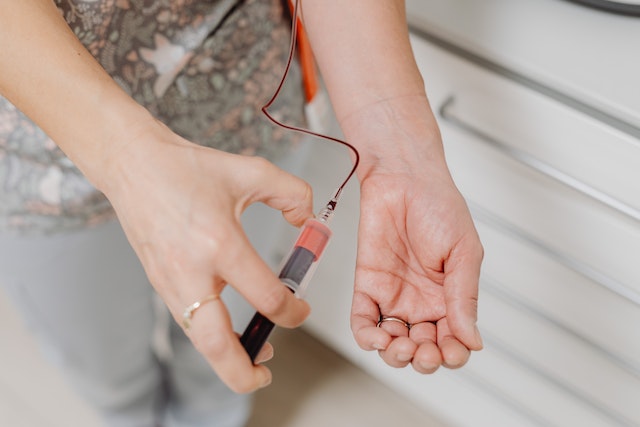Home » News » 2024 » August
News Brief
Aug. 8, 2024 |
By: Mark Moran - Public News Service
Iowans to benefit from new Alzheimer's blood test

By Mark Moran - Public News Service
Researchers have announced a new blood test that will predict whether someone has Alzheimer's disease far better than current tests can. A new law in Iowa will make sure it's covered by insurance.
The Alzheimer's Association says the blood test is 90% accurate in informing people showing signs of cognitive impairment if they have the disease.
Iowa Chapter Communications Director Lauren Livingston said it's a huge step beyond the memory tests doctors currently use.
"Very good news," said Livingston. "It was about 30% to 40% higher accuracy rate with the blood test, versus just the physicians using a memory screening."
Livingston said patients must have a certain amount of "tau" in the brain, a protein that is an Alzheimer's precursor, to qualify for the test.
Iowa passed a law this year that requires state-funded health insurance companies to cover tests for dementia biomarkers, like tau in the blood.
Livingston said positive blood tests could boost recruitment for Alzheimer's clinical trials and reduce wait times for assessment.
There is no cure for the disease, but Livingston said early detection means a person can take drugs to slow its progression.
She said the test can be especially helpful outside Iowa's metro areas that have larger health care centers.
"Especially to rural Iowans who don't have as much access to specialists and these tests," said Livingston. "It would be much, much easier for them to be able to get a diagnosis if there was a simple blood test available."
Some 62,000 Iowans suffer from Alzheimer's disease. Nationwide, the number is close to 7 million, although the Alzheimer's Association says the disease is underdiagnosed.
Livingston is hopeful the test is available in health care settings in the near future.
![]()






